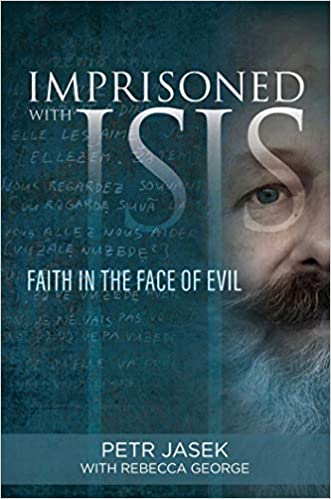A Word about Suffering

Perhaps you thought about the meaning of suffering when hearing about the dramatic forms of persecution experienced by Christians in Sudan. I hope you’ll agree with me that persecution is not only a “disciplinary instrument’ for lukewarm Christians to let them get rid of their carnality or a “catalyst” to spread the Gospel.
The New Testament speaks about suffering from a different point of view: “But rejoice insofar as you share Christ’s sufferings, that you may also rejoice and be glad when his glory is revealing” (1 Peter 4:13). Yes, you read properly: we should rejoice when sharing in sufferings! Look at the apostles who were being beaten by the Jews: “Then they left the presence of the council, rejoicing that they were counted worthy to suffer dishonor for the name” of Jesus (Acts 5:41). Yes, the apostles considered it an honor to be beaten for their Lord.
In Philippians 1:29, the apostle Paul considers the suffering of the Christians a “granted privilege”; “For it has been granted to you that for the sake of Christ you should not only believe in him but also suffer for his sake.” I believe that suffering, especially when crowned with a martyr's death, is one of the outstanding honors and an important privilege for Christians. This “graduation ceremony” includes a lot of spectators. But they don’t only include demanding spectators of the Roman arenas or furious members of the executing commandos. (By the way, some of these became genuine Christians when seeing the faithfulness of the executed Christians.) Christian martyrs are a testimony of faith and obedience not only to our visible world, but--I dare to say--especially to the spiritual one. “For I think that God has exhibited us apostles at last of all, like men sentenced to death, because we have become a spectacle [Greek; theatron] to the world, to angels, and to men” (1 Corinthians 4:9). Yes, a theater! Of course, it is pertinent for Christians to be ready to appear on life’s stage, or--as you like--in the arena on public display.
I know the Lord is proud of His servants--He even prides Himself on them. “Have you considered My servant Job, that there is none like him on earth, a blameless and upright man, one who fears God and shuns evil?” says the Lord to Satan. It isn’t Satan who, with malicious joy, would point to the chosen object of his temptation, whom he knows about and whom he will dupe. It’s the Lord who prides Himself on His servant because He knows Job will remain faithful even in the most difficult temptations. He knows what we are able to bear, and He will not allow us to be tempted beyond that (see 1 Corinthians 10:13).
Yes, a Christian martyr is a “live” actor on the stage of ages over which the Lord Himself is the director, and the spectator in the first row of seats is Satan with his servants. God demonstrates to the visible as well as to the spiritual world the faithfulness of His servants, which Lucifer lost when he lifted himself in pride.
The Lord doesn’t choose that role for everyone to play. Nonetheless, we are one body in Christ. “If one member suffers, all suffer together; if one member is honored, all rejoice together” (1 Corinthians 12:26).
As we are members of one body, it is fully natural to be interested in where and how a part of our body--our brothers and sisters--suffers. “Remember those who are in prison, as though in prison with them, and those who are mistreated, since you also are in the body” (Hebrews 13:3). We can understand the word “body” not only as a physical body, but also as a spiritual body--the church. By refusing to be unconcerned or indifferent toward our persecuted Christian brothers and sisters--wherever they live around the world--we make it clear that we are fundamentally affected by their sufferings, that we are members of the same body, of which the Lord Jesus Christ is the head.
“I was in prison and you came to me,” says the Lord Himself in Matthew 25:36. It’s almost impossible to visit the majority of totalitarian prisons. Nevertheless, what we can do is send an encouraging card to the prisoner or a protest card to their prison guard. There are many ways to show how we are members of the same suffering body, and the Lord wants us to do that.
Exclusive excerpt from author Petr Jasek's book, Imprisoned with ISIS: Faith in the Face of Evil (Salem Books, June 2, 2020). Used with permission.
Can God change your life?
God has made it possible for you to know Him and experience an amazing change in your own life. Discover how you can find peace with God. You can also send us your prayer requests.
We encourage users who wish to comment on our material to do so through our CBN Facebook page.






